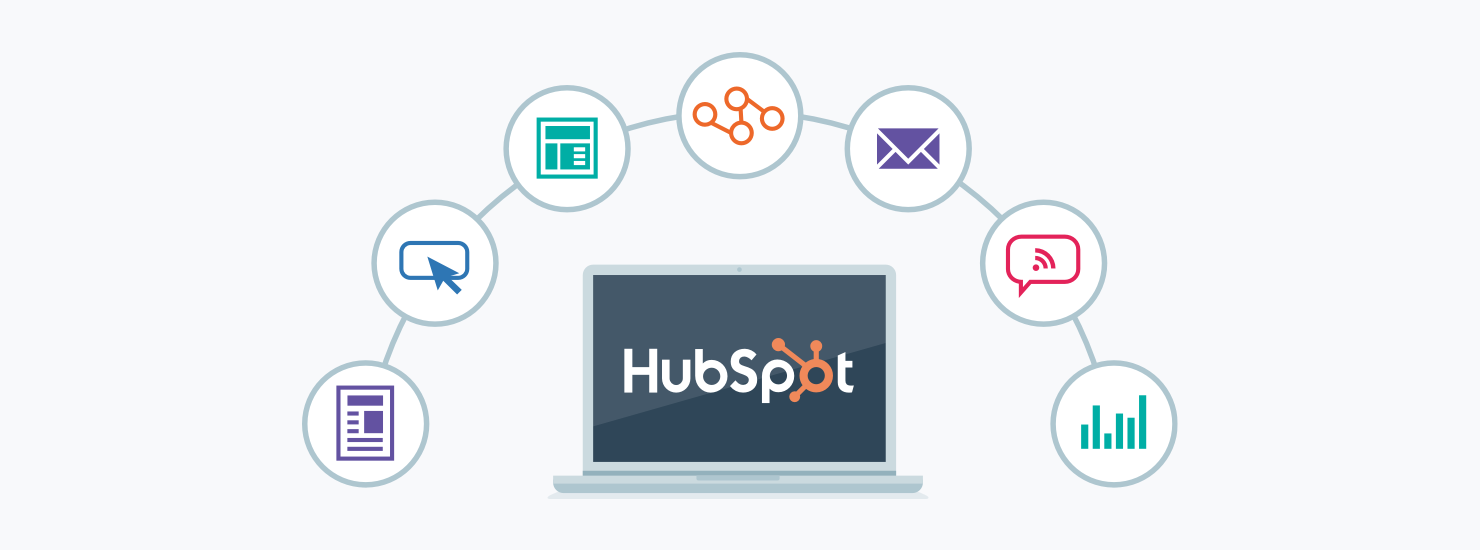Hubspot vs Salesforce: Which CRM Is Best For You?
Choosing the right Customer Relationship Management (CRM) software can be difficult but this is only because there is no single software program that suits all businesses.
That being said, when you’re researching CRM software packages, two names seem to come up more than the others: HubSpot vs Salesforce.
Both HubSpot and Salesforce are excellent programs that provide valuable services to help grow your business, but if you want to determine which one is best for your particular business, you have to start by exploring them in more detail, and that’s what this article is here to help you do.
What Is CRM?
Customer relationship management is necessary for sales teams that need to manage lots of customer information, as well as organize the clients’ information and work to create a better relationship with their current and prospective customers.
CRM software is a very important tool when it comes to staying in contact with your business contacts and servicing current customers so they never feel as if they are forgotten. With CRM software, you can track your messages, keep track of all customer contact points, and much more.
This software keeps the sales lifecycle automated, provides a simple way to view everything in your customer database, and helps the sales and service departments work better together throughout the process. It provides a very cohesive function for the various departments so no snag results and no complications develop.
Of course, to decide between HubSpot and Salesforce, you have to first know a little about them, and that’s what this article is here to do.
The Right CRM Software: All About HubSpot
HubSpot’s customer relationship management tool was launched in 2014 and has grown in popularity quite a bit since then. It offers contact management, lead management, and email services, among others. They also offer systems for content management and marketing automation.

The company lets you try out the product for free, which is perfect for many small and medium-sized businesses. You can always move up to the paid memberships once your business grows, and they even have a complete marketing suite that has an enterprise CRM that personalizes the services to meet your needs.

What About Salesforce?
Salesforce has been around since 1999 and is one of the first companies to adopt the software-as-a-service (SaaS) model. The CRM concept was popularized with the help of this software, which offers artificial intelligence-based insights and detailed customization.
When it comes to competition for HubSpot, Salesforce is definitely one of the companies at the top of the list. One of the differences between the two companies is that while Salesforce is better suited for enterprise-level companies, HubSpot can easily accommodate businesses of all sizes.
Let’s take a look at some of these companies’ features in a little more detail.
Ease of Use
HubSpot has an interface that is simple and intuitive, while Salesforce tends to be a little technical in nature, which means that if you aren’t at least a little tech-savvy, you may need some assistance with it. If you have a well-qualified IT team, you can always get the help you need to operate Salesforce.

However, if your business is small and you have no IT team, you might want to consider going with HubSpot. As a general rule, this program is the simplest to operate, so if you’re a salesperson without a lot of techie ability, it should be considered above and beyond Salesforce.

User Interface
Both of these software programs have their strengths and advantages when it comes to their user interface, one of them being Salesforce’s more feature-rich and technical interface. This is a good thing, except if you’re one of those people who aren’t tech-savvy and prefer an interface that is easy to navigate and simple to understand.
For instance, when you first open the Salesforce interface, you’re instantly inundated with more than 15 tabs, which include tabs for handling files and contacts, managing leads, etc. If you’re a beginner, this can be downright overwhelming.
HubSpot, on the other hand, has an intuitive UI that displays only the options most essential. This allows you to stay focused on what’s necessary and gives you a comprehensive view of your CRM system.
Analytics and Reporting Features
In the area of analytics and reporting, Salesforce is extremely powerful and offers a high degree of customization. HubSpot’s analytics and reporting features are lesser in number and capability, even though they are still excellent features you’ll benefit from.

While these features are a bit better with Salesforce, there’s little doubt that HubSpot is catching up to them, and their features are a little more intuitive and consist of drag-and-drop features for convenience. The company is continuously updating their features to keep the software in line with other CRM software, so the differences between the two programs are becoming less and less noticeable all the time.
HubSpot CRM in 2025
HubSpot CRM continues to be a popular choice for small to mid-sized businesses due to its intuitive interface and modular approach. The platform has significantly enhanced its AI capabilities with HubSpot AI Studio, which provides predictive lead scoring, automated sales forecasting, and AI-powered content suggestions. This allows teams to focus on high-priority leads while streamlining routine tasks.
HubSpot now offers a freemium model, letting businesses get started at no cost and upgrade modularly based on their needs. Each “Hub” (Marketing, Sales, Service, CMS) can be purchased individually or combined for a comprehensive solution.
In 2025, HubSpot’s interface is more user-friendly than ever, reducing onboarding time and making it easy for teams to adopt without extensive training. Its AI tools and automation features make it ideal for businesses looking to optimize sales processes, marketing campaigns, and customer engagement efficiently.
Salesforce CRM in 2025
Salesforce remains the market leader for businesses of all sizes, from SMBs to large enterprises. In 2025, Salesforce has rolled out Einstein Copilot and Agentforce, enabling AI-powered autonomous agents for customer service, lead scoring, and campaign management. These tools help organizations automate repetitive tasks and generate insights for smarter decision-making.
Salesforce offers extensive customization options, making it highly flexible but requiring more implementation time and expertise. Its pricing starts at $25 per user per month for basic plans, with additional costs for advanced features and AI tools.
Despite the complexity, Salesforce is ideal for organizations that need scalable, enterprise-grade CRM capabilities, advanced reporting, and deep integration across sales, marketing, and service workflows.



